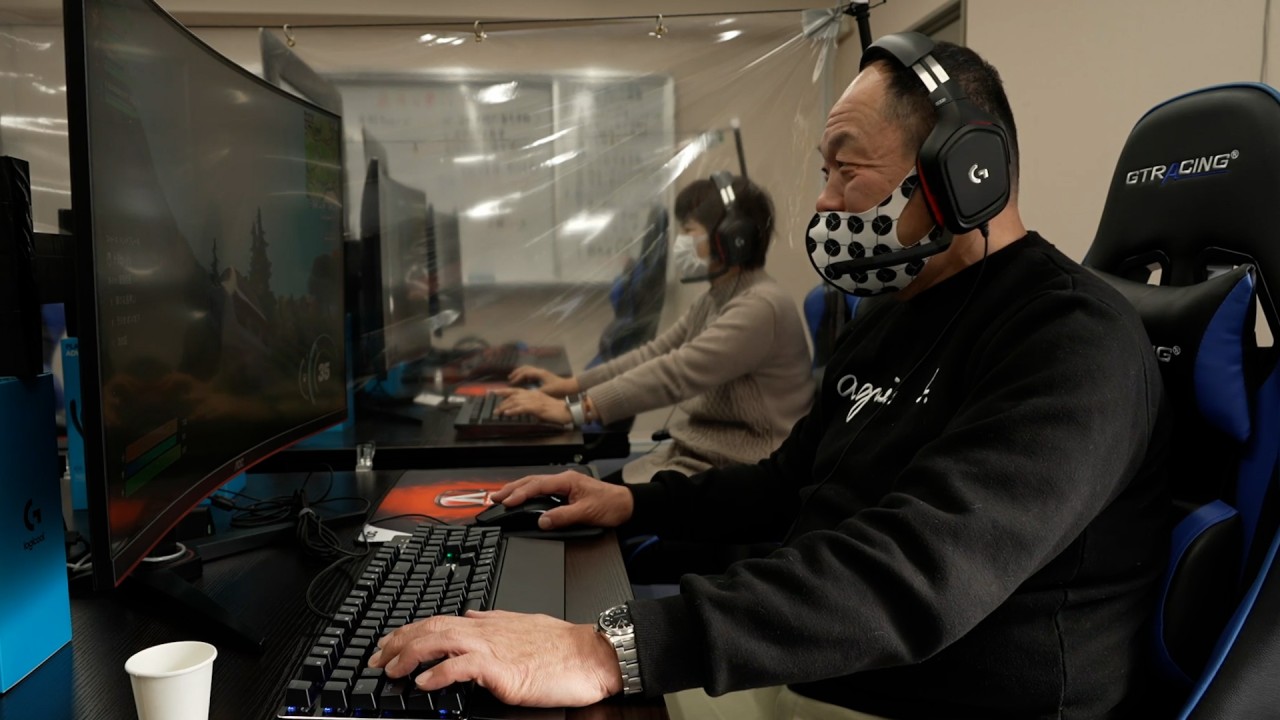
02:11
Game on: new centre in Japan helps seniors connect with others through gaming

As the world slowly recovers from one of the worst pandemics in human history and the real social and economic effects of public health responses to Covid-19 come to bear, there will be many lessons learned. Humanity will have to understand what exactly happened, where we got it right, and where we went wrong.
If there is a consensus among scientists about anything, it’s that we have seen an increasing number of infectious disease outbreaks – particularly zoonoses, or diseases transmitted to humans from animals – and that the next pandemic is coming. It might even be worse than Covid-19.
We should learn from our past mistakes, to better prepare for the next pandemic, so we can save lives and avoid some of the hardship and suffering humanity has experienced in the past three years.
One thing we got wrong is our attitude towards and treatment of loneliness. Even before Covid-19, we knew loneliness was extremely common, affecting 18-40 per cent of people across the globe. We also knew that loneliness was a major health risk factor, increasing the risk for cardiovascular disease, diabetes, depression, suicide and early mortality. We did not, however, understand how bad it can actually be.
You feel lonely when the social relations you expect to have do not align with the social relations you perceive you have. This is not a wholly adequate definition of loneliness, but it is the one most commonly used. You can thus feel lonely in the middle of a bustling street in Kowloon, for example, or feel in solitude – meaning that you have a positive and productive experience of aloneness – even while hiking alone on Lamma Island.
Social isolation is the objective experience of aloneness, and it only partially correlates with loneliness. That is to say, social isolation increases your chances of feeling lonely, but you can be lonely without being socially isolated.
We missed the mark in our treatment of the social ill that is loneliness in several ways. First, we failed to realise the scope and gravity of loneliness worldwide as people were forced to stay in their homes and patients died alone in hospitals, surrounded by strangers dressed in white.
We did not realise people were so concerned about being lonely that they broke quarantine, or that patients and families were so concerned about loneliness in hospital that they refused admission, opting to die alone among family. We did not realise that loneliness will persist long after Covid-19 has passed.
Second, we failed to consider the populations most at risk for loneliness. Thinking about loneliness, we became accustomed to focusing on the elderly, living alone after their spouse has died. Research in Hong Kong has emphasised loneliness among the elderly, even using the term “hidden elderly” to refer to those who barely leave their homes and therefore remain unknown in their loneliness.
This emphasis on the elderly is not specific to Hong Kong. A 2020 report by the US National Academy of Sciences also focuses on loneliness among the elderly, similar to a 2021 report by the World Health Organization.
Loneliness among the elderly definitely requires our attention and we should do more to address it, but the elderly might cope with loneliness better than other groups. Conducted before the pandemic, the BBC Loneliness Experiment is the largest loneliness survey to date.
Among 55,000 participants worldwide, 40 per cent of people aged 16 to 24 felt lonely compared with 27 per cent among people aged 75 and older. Young adults are the population most at risk of loneliness, and during the pandemic this population was largely neglected, with terrible consequences.
Third, world governments and public health agencies did not do enough to prevent and mitigate loneliness. As an emergency medicine doctor in Israel, I had patients committing suicide because their families could not visit them, making them lonely.
We failed to provide technological solutions such as social robots that can potentially reduce loneliness. We failed to consider innovative measures against loneliness in the community and in hospitals. Such measures include governmental initiatives to address loneliness within communities and family isolation policies in hospitals.
As humanity mourns the loss of optimism and human lives from Covid-19 and braces for the next pandemic, as well as other challenges, we should take care of the lonely among us. Humans have a right to health, and since loneliness negatively affects our health, humans have a right against loneliness as a derivative of the right to health.
Moreover, humans are essentially social creatures who depend on social relations for our well-being. As philosopher Kimberley Brownlee argues, humans have a right to a minimally good life, and since we are essentially social creatures, such a right compels four kinds of social goods: basic social abilities, adequate social opportunities, access to persistent, stable social connections, and the means to contribute directly to other’s people’s survival and well‐being.
A right against loneliness, in this case, derives from a right to a minimally good life. Insofar as societies exist to better human lives, they are obliged to provide all four kinds of social goods.
Zohar Lederman is an emergency medicine physician from Israel who is currently conducting research at the Medical Ethics and Humanities Unit, LKS Medical Faculty, University of Hong Kong.